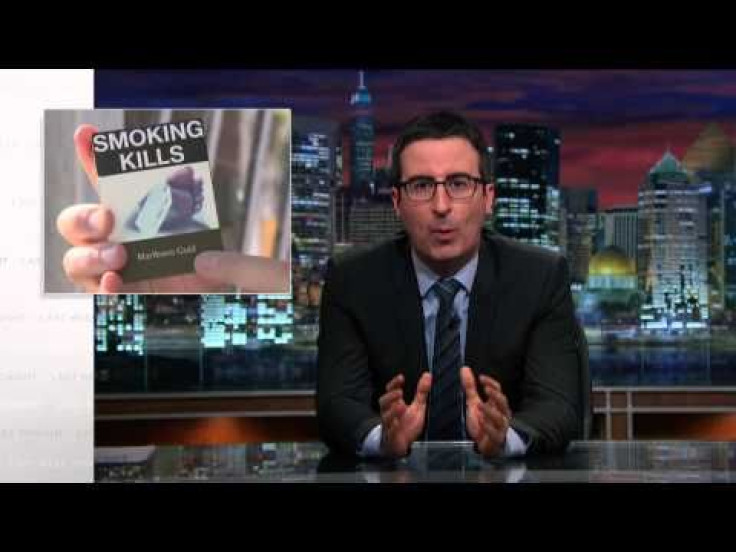John Oliver Explains How Tobacco Companies Make Money Despite Smoking Rate Decline

In a span of 50 years, the national smoking rate in the U.S. has fallen from nearly 45 percent of the population, in 1965, to just 18 percent today. By many measures — life expectancy, disease prevalence, financial burden — that drop is staggering, not to mention impressive in a country this large and diverse. But tobacco companies are still thriving. How?
John Oliver’s most recent exploration of America’s (sometimes) quiet demons sought to answer this question. However, Last Week Tonight discovered its answer couldn’t be found on U.S. soil, because the majority of tobacco companies’ revenue derives from international sales — particularly in countries where an uninformed public can be easily exploited.
Oliver looks at Togo, Uruguay, the Solomon Islands, and Namibia, all countries where the sale and consumption of cigarettes and other tobacco products aren’t just loosely regulated; they’re practically encouraged from birth. Oliver cites the famous case of a 2-year-old Indonesian boy already addicted to smoking, who reportedly bangs his head on the wall when his mother takes his cigarettes away. When these poorer countries try to implement warning labels on cigarette packaging, the tobacco corporations swoop in with lawsuits. Such was the case in Togo, where Philip Morris International threatened legal action when the country considered graphic imagery as a way to dissuade people from smoking, instead of written warnings, because nearly half of the country can’t read.
To satisfy brand-conscious tobacco companies and anti-smoking advocates, Oliver suggests a new mascot: Jeff, the diseased lung in a cowboy hat. Jeff is already on bus stop ads in Uruguay, t-shirts in Togo, and has a hashtag, #JeffWeCan, devoted specifically to get his name buzzing around the world.



























